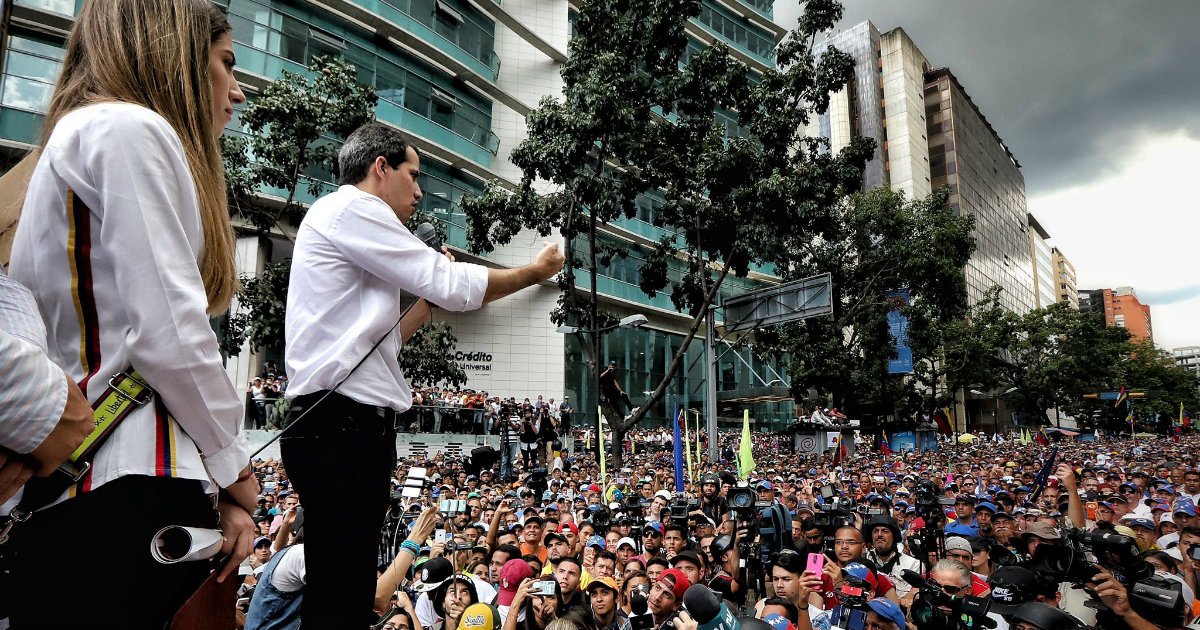
CARACAS, Nov 16 (Reuters) - The Venezuelan opposition took to the streets on Saturday in an attempt to revive the mobilization to pressure the departure of power from Nicolas Maduro, in the midst of the economic crisis and successive United States sanctions that besiege the oil nation.
"Bolivia was there for 18 days, we have been there for years (…) well, it is time to insist, it is time to continue, so today I ask all of Venezuela to keep us going, to continue. There is a protest agenda," said Juan Guaidó during a rally. opposition in Caracas.
Guaidó began a new anti-government opposition campaign in January, when he invoked the Constitution to assume an interim presidency by alleging that Maduro's 2018 re-election was fraudulent.
However, as the months passed, the population's interest seemed to decrease and frustration increased over the permanence in office of Maduro, who retains control of the state apparatus, while the economic crisis has forced at least some 4.6 million Venezuelans to migrate from the country, according to United Nations data.
Guaidó has been recognized by dozens of Western countries as the legitimate leader of the OPEC member nation.
In another part of the speech he invited his followers to continue the march on Saturday to the headquarters of the Bolivian embassy in the capital and asked them to join a day of protest that begins on Monday against the government and also in support of public workers and students.
In the main cities of the center, west and south of the country, opposition protesters gathered in streets and avenues, mostly dressed in white.
Armed men, dressed in black and wearing masks, They violently broke into the headquarters of Guaidó's party on Friday, Voluntad Popular, in an incident described by opposition leaders as a government intimidation plan.
Opposition sectors have seen in the resignation of Evo Morales to the presidency of Bolivia a new motivation. The indigenous leader, an ally of Maduro, was accused of manipulating the results of the October 20 general elections and three weeks later he left power after violent protests and pressure from military leaders.
WHITE MARCH AND RED COUNTERMARCH
In Venezuela, a change of government would still depend on the Armed Forces, which are loyal to Maduro.
"The senior military are the ones who are doing well, but the people are the ones who are in need," he told Reuters Rosabal Navarro, a 60-year-old retiree, at a demonstration in San Cristóbal, in the border state of Táchira, in the west of the country.
Meanwhile, followers of the ruling party began a march dressed in red and with calls of support for the president to the government palace in Caracas.
"This is a peaceful revolution, but armed. We are not like the Bolivians, who do not even have an armed arrow, not even poisoned at the tip," said Aída Romero, a worker in a government social program.
Venezuela has been mired for years in hyperinflation and economic collapse, which has generated the exodus of millions of people in an attempt to access food and medicine.
(Reporting by Brian Ellsworth and Deisy Buitrago, additional reporting by Vivian Sequera and Shaylim Valderrama in Caracas, Anggy Polanco in San Cristóbal, María de Los Angeles Ramírez in Ciudad Bolívar, Tibisay Romero in Valencia, Mariela Nava in Maracaibo. Editing by Vivian Sequera and Marion Giraldo)
What do you think?
COMMENTFiled in: